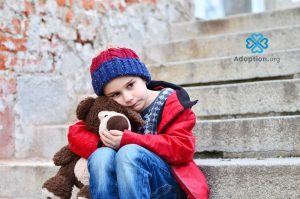You basically have a fear of the unknown. That’s a perfectly normal response to anything new. There are lots of questions. What will the children be like? How will fostering affect my biological kids? Will I be able to meet all of their needs? Being afraid means you care about the kids, and you don’t want to do anything to let them down. You realize that children who enter the foster care system have experienced things that no one should ever have to go through. They have been taken away from the only family they have ever known and thrown into a world of strangers. It can be terrifying and is definitely traumatic aside from whatever situation landed them in foster care.
Of course, everyone has seen horror films where foster parents take in a child who looks “innocent” only to find that he or she is really not. Those are just movies. I’m sure there are cases where a deeply disturbed child ends up in foster care and causes trouble, but that is certainly the exception, not the rule. Most often, they are just average kids in need of support and love. They are there through no fault of their own. Yes, they may suffer from other issues that biological children do not, but that is mainly because of the traumatic things they have had to experience at such a young age.
If you feel a calling to help kids in foster care, then you should definitely go for it. You can work closely with a social worker and discuss with him or her if you have certain specifications that you think will best fit your family. There is no shortage of kids entering foster care, and your local social service office will take all the help they can get. The office can supply you with all the resources you need to get all your questions answered and all your concerns addressed.
Additional Reading:
7 Reasons You Should Become a Foster Parent
Becoming a Foster Parent Guide
Ashley Foster is a freelance writer. She is a wife and a mother of two, currently residing in Florida. She loves taking trips to the beach with her husband and sons. As an infant, she was placed with a couple in a closed adoption. Ashley was raised with two sisters who were also adopted. In 2016, she was reunited with her biological family. She advocates for adoptees’ rights and DNA testing for those who are searching for family. Above all, she is thankful that she was given life.
